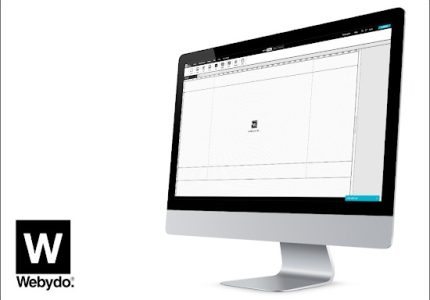Understanding Website Design in South Africa
Understanding website design in South Africa is essential for businesses looking to establish a strong online presence in the region. A well-crafted website not only attracts local customers but also reflects the brand’s identity and credibility. In South Africa, selecting the right design approach and reliable hosting services can significantly enhance website performance, user experience, and search engine rankings, making it a vital aspect of digital success in the competitive African market.
Key Elements of Effective Web Design
Understanding website design in South Africa involves recognizing the importance of creating visually appealing and user-friendly websites that cater to the local audience. An effective web design combines aesthetics with functionality, ensuring visitors have a seamless experience. When designing websites in South Africa, it is crucial to consider cultural relevance, usability, and responsiveness across devices.
Key elements of effective web design include clear navigation, fast load times, and mobile responsiveness. A clean and intuitive layout helps visitors find information easily, reducing bounce rates. Additionally, high-quality visuals and consistent branding reinforce professionalism and trustworthiness. Incorporating relevant local content and ensuring the website is optimized for search engines further enhances visibility and engagement in the South African market.
Current Trends in South African Web Design
Understanding website design in South Africa involves recognizing the unique preferences and technological landscape of the region. As businesses increasingly migrate online, designing websites that are visually appealing, user-friendly, and optimized for South African users becomes essential. Current trends in South African web design reflect a blend of global influences and local preferences, emphasizing accessibility, mobile responsiveness, and cultural relevance.
Some of the key current trends in South African web design include:
- Mobile-First Design: With high mobile phone penetration, websites are primarily optimized for mobile devices to ensure seamless user experience across all screen sizes.
- Minimalist Aesthetics: Clean, simple layouts with a focus on essential content help improve readability and reduce load times, which is vital in areas with varying internet speeds.
- Use of Local Colors and Imagery: Incorporating vibrant colors and images that reflect South African culture and landscapes resonates with local audiences and enhances brand identity.
- Fast Load Speeds: Optimizing website performance is crucial due to inconsistent internet connectivity in some regions, emphasizing the importance of efficient hosting solutions.
- Integrated Social Media and Payment Options: Seamless integration of local social media platforms and popular payment gateways like SnapScan and Zapper caters to the preferences of South African consumers.
- Focus on Accessibility and Inclusive Design: Making sites accessible to users with disabilities aligns with global standards and expands reach within diverse communities.
User Experience (UX) Principles
Understanding website design in South Africa requires a focus on User Experience (UX) principles that ensure visitors have an intuitive and engaging interaction with the site. Effective UX design emphasizes creating websites that are easy to navigate, visually appealing, and accessible across various devices and browsers. In the South African context, considering diverse user demographics and varying levels of internet connectivity is essential to develop inclusive and functional websites.
Key UX principles include clarity in layout, consistency in design elements, and simplicity in navigation. Clear calls-to-action guide users seamlessly through the site, while consistent use of colors, fonts, and styles maintains a professional appearance. Simplified navigation menus help users find information quickly, reducing frustration and bounce rates. Additionally, optimizing website loading times and ensuring mobile responsiveness are critical, especially given the increasing use of smartphones in South Africa.
Understanding local preferences and cultural nuances also influences effective website design. Incorporating local languages, relevant imagery, and culturally appropriate content can significantly enhance user engagement. By adhering to core UX principles, South African websites can provide a satisfying user experience, foster trust, and ultimately support the success of businesses operating online in the region.
Mobile Responsiveness and Adaptability
Understanding website design in South Africa involves creating visually appealing and functional websites that cater to the local audience. With the rapid growth of internet access across the country, especially through mobile devices, mobile responsiveness and adaptability have become essential components of effective website design.
Mobile responsiveness ensures that a website displays correctly on various screen sizes, from smartphones to tablets and desktops. An adaptable website automatically adjusts its layout, images, and content flow to provide a seamless user experience regardless of the device used. This not only enhances user satisfaction but also improves search engine rankings, as search engines prioritize mobile-friendly sites.
- Design with a flexible grid layout that adjusts to different screen sizes
- Use scalable images and media to prevent slow loading and distortion
- Implement responsive typography to ensure readability across devices
- Test the website on multiple devices and browsers to ensure consistency
- Optimize performance to reduce load times, especially on mobile networks
Importance of Localized Website Content
Localized website content plays a crucial role in connecting businesses with their target audience, especially in regions like South Africa. By tailoring content to reflect local culture, language preferences, and regional interests, companies can enhance user engagement and build trust with visitors. In the context of website design and hosting in South Africa, creating relevant and localized content ensures that the website resonates with local users, ultimately leading to increased conversions and a stronger online presence.
Language and Cultural Relevance
Localized website content, language, and cultural relevance are crucial components in effective website design and hosting in South Africa. Tailoring content to reflect the local language nuances, customs, and preferences enhances user engagement and trust. When visitors see information that resonates with their cultural context, they are more likely to stay, explore further, and convert into customers. Additionally, providing content in the local languages such as isiZulu, isiXhosa, Afrikaans, or Sotho can significantly improve accessibility and inclusivity, ensuring that diverse audiences feel respected and understood. Ultimately, incorporating cultural relevance and localized language into website design fosters stronger connections with the South African audience, leading to increased loyalty, better user experience, and competitive advantage in the regional market.
SEO Strategies for South African Markets
Localized website content plays a crucial role in establishing credibility and connecting with the South African audience effectively. By tailoring content to reflect local culture, language preferences, and regional interests, businesses can foster trust and engagement among visitors. This relevance not only enhances user experience but also encourages higher conversion rates.
Implementing SEO strategies specific to the South African market involves optimizing for local search terms, utilizing South Africa-centric keywords, and ensuring your website appears in local search results. Incorporating geo-targeting, optimizing Google My Business profiles, and generating localized backlinks are essential tactics. These efforts improve visibility in search engines, Drive targeted traffic, and increase the chances of reaching potential customers within South Africa.
Legal and Compliance Considerations
Localized website content is essential for engaging South African audiences effectively, as it ensures that visitors find the information relevant, culturally appropriate, and accessible in their preferred language or dialect. By tailoring content to local preferences, businesses can build trust and credibility, ultimately increasing user engagement and conversions.
Legal and compliance considerations are equally critical when designing and hosting websites in South Africa. Adhering to the Protection of Personal Information Act (POPIA) ensures that user data is collected, stored, and processed responsibly, protecting both the business and its customers. Additionally, compliance with local advertising standards, accessibility laws, and consumer protection regulations helps avoid legal penalties and fosters a reputation of integrity. Ensuring that your website aligns with these legal frameworks is vital for sustainable online operations in South Africa.
Choosing the Right Website Hosting in South Africa
Selecting the right website hosting provider is a crucial step in establishing a successful online presence in South Africa. With a variety of hosting options available, understanding the local market and choosing a service that offers reliable performance, excellent support, and scalability can significantly impact your website’s speed and user experience. Making an informed decision tailored to your specific needs ensures your website remains accessible, secure, and capable of growing alongside your business.
Types of Hosting Services Available
Choosing the right website hosting in South Africa is a crucial step for establishing a successful online presence. It ensures your website functions smoothly, loads quickly, and remains secure for visitors. With various hosting options available, it’s important to understand the types of services to make an informed decision that aligns with your website’s needs and growth plans.
Shared hosting is a popular choice for beginners and small businesses. It involves hosting your website on a server with other websites, making it cost-effective and easy to manage. However, shared hosting may have limitations in terms of resources and performance during high traffic periods.
VPS (Virtual Private Server) hosting offers a middle ground, providing a dedicated portion of a server’s resources to your website. This ensures better performance, more control, and scalability, suitable for growing businesses or websites with higher traffic volumes.
Dedicated hosting provides an entire server exclusively for your website. It offers maximum control, security, and performance, ideal for large enterprises or high-traffic websites that require extensive customization and resource allocation.
Cloud hosting leverages multiple servers to host your website, offering high scalability, reliability, and flexibility. It is suitable for websites that experience fluctuating traffic and need to adapt quickly to changing demands.
Choosing the right hosting service in South Africa depends on your budget, website size, expected traffic, and technical expertise. Evaluating these factors will help you select a hosting plan that ensures optimal performance and support for your website.”
Benefits of Local Hosting Providers
Choosing the right website hosting provider is a crucial step in ensuring a successful and efficient online presence for businesses in South Africa. Opting for a local hosting provider offers numerous advantages that can significantly enhance website performance and user experience.
- Improved Website Speed and Performance: Local hosting servers reduce latency, providing faster load times for South African visitors.
- Better Search Engine Rankings: Search engines favor websites that load quickly and deliver a seamless user experience, improving local SEO efforts.
- Enhanced Customer Support: Local providers often offer support tailored to regional needs, ensuring quicker assistance and understanding of local market nuances.
- Regulatory Compliance: Using local hosting ensures adherence to South African data protection laws and regulations.
- Cost-Effective Solutions: Local providers typically offer competitive pricing for South African businesses, reducing overall hosting costs.
- Increased Reliability and Uptime: Proximity to the hosting server minimizes disruptions, ensuring your website remains accessible.
- Community and Networking Opportunities: Hosting locally can facilitate connections with other regional businesses and technology providers.
In summary, selecting a local South African hosting provider not only boosts website performance but also aligns with regional compliance and support needs, making it an ideal choice for businesses aiming to establish a strong online presence in South Africa.
Factors to Consider in Hosting Selection
Choosing the right website hosting provider in South Africa is crucial for ensuring optimal website performance, security, and scalability. When selecting a hosting service, it is important to consider various factors that align with your specific website needs and business goals.
- Server Location: Opt for hosting providers with servers located in South Africa or nearby regions to ensure faster load times and better website performance for local visitors.
- Hosting Type: Decide between shared hosting, VPS, dedicated hosting, or cloud hosting based on your website’s traffic levels and resource requirements.
- Uptime Guarantee: Look for providers that offer at least 99.9% uptime to minimize website downtime and ensure consistent availability.
- Security Features: Ensure the hosting service provides robust security measures, including SSL certificates, malware protection, and regular backups.
- Customer Support: Choose a provider with reliable and accessible customer support available 24/7 to resolve any issues promptly.
- Pricing and Value: Compare pricing plans and features to find a solution that offers the best value without compromising essential services.
- Scalability: Consider whether the hosting provider can accommodate future growth by offering scalable resources and plans.
- Reputation and Reviews: Research customer reviews and industry reputation to gauge the reliability and quality of the hosting provider.
- Additional Features: Check for features like website builders, one-click WordPress installations, or CDN integrations that can enhance website performance and management.
Security and Data Privacy Regulations
Choosing the right website hosting provider in South Africa is essential for ensuring optimal website performance, security, and compliance with local regulations. When selecting a hosting service, it’s important to consider how well the provider adheres to security protocols and data privacy laws to protect your business and its visitors.
- Security Features: Ensure the hosting provider offers robust security measures such as SSL certificates, firewalls, regular malware scans, and DDoS protection to safeguard your website and user data.
- Data Privacy Regulations: Confirm that the hosting provider complies with South Africa’s Protection of Personal Information Act (POPIA), which mandates strict handling and processing of personal data.
- Data Storage Location: Opt for providers that store data within South Africa or in regions with similar data protection standards to minimize latency and ensure regulatory compliance.
- Backup and Recovery: Choose hosts that offer regular backups and disaster recovery options to protect your data against loss or cyber threats.
- Reputation and Support: Select a provider with a proven track record of security and excellent customer support to quickly address any issues related to security breaches or data privacy concerns.
Popular Website Hosting Providers in South Africa
In South Africa, choosing the right website hosting provider is a crucial step for businesses and individuals seeking a strong online presence. With a variety of hosting options available, popular providers offer reliable performance, local data centers, and excellent support tailored to the needs of South African websites. These hosting services play a vital role in ensuring fast loading times, security, and scalability for growing online platforms across the region.
Overview of Leading Hosting Services
South Africa has a growing digital landscape, with several hosting providers offering reliable services to support website design and development. Leading hosting providers in the region cater to various needs, from small businesses to large enterprises, ensuring local businesses have access to fast and secure hosting solutions.
- Hetzner South Africa – Known for competitive pricing and reliable service, Hetzner provides a range of hosting options including shared hosting, VPS, and dedicated servers tailored for South African businesses.
- Afrihost – A popular local provider offering affordable web hosting, domain registration, and managed WordPress hosting, with excellent customer support.
- xneelo – One of the largest hosting companies in South Africa, xneelo offers extensive hosting solutions focused on security, performance, and scalability for diverse website needs.
- Domains.uwaweb – Provides tailored hosting packages suitable for startups and small businesses, emphasizing user-friendly management and local support.
- Vox Telecom – Offers comprehensive web hosting services combined with internet connectivity solutions, ideal for businesses seeking integrated digital services.
Comparison of Pricing and Features
Choosing the right website hosting provider in South Africa is essential for ensuring optimal performance, reliability, and scalability for your website. Popular hosting providers in the region include Hetzner, Webafrica, DomainRacer, and Afrihost, each offering different packages tailored to various business needs. When comparing pricing, Hetzner is known for its affordable VPS options starting at a low monthly rate, making it suitable for small businesses or startups. Webafrica offers a range of shared hosting plans with competitive prices and included features such as SSL certificates and website builders. DomainRacer provides budget-friendly hosting with high uptime guarantees and scalable resources, ideal for growing websites. Afrihost combines affordability with excellent customer support, offering shared hosting, WordPress hosting, and cloud hosting solutions. In terms of features, most providers include free SSL certificates, email hosting, and one-click WordPress installation, but the specifics can vary. For instance, some may offer more extensive bandwidth, larger storage options, or enhanced security features at higher tiers. Evaluating these providers involves balancing cost with the features most critical to your website’s success, such as uptime, support responsiveness, and scalability options. Overall, South African hosting providers present a competitive landscape suited for a wide range of web development and hosting needs.
Customer Support and Reliability
When exploring website design and hosting options in South Africa, selecting a reliable hosting provider with excellent customer support is essential for ensuring your website’s success. South African businesses and individuals prefer hosts that offer local data centers, robust support, and dependable uptime to keep their online presence active and accessible.
- **A2 Hosting:** Known for its fast performance and strong customer support, A2 Hosting offers South African clients optimized hosting solutions with 24/7 technical assistance.
- **SiteGround:** Renowned for reliability and excellent customer service, SiteGround provides data centers in Africa, making it a popular choice for local website hosting.
- **Hetzner South Africa:** A trusted local provider offering competitive pricing, solid uptime, and dedicated support tailored for South African website owners.
- **Cloudflare:** While primarily a CDN provider, Cloudflare offers robust security and performance services with reliable support, ensuring your website remains accessible and protected.
- **xneelo:** A prominent South African hosting provider with a strong focus on customer support and reliability, suitable for small to large-scale websites.
Integrating Design and Hosting for Optimal Performance
Integrating design and hosting is essential for achieving optimal website performance, especially in the vibrant digital landscape of South Africa. By aligning aesthetic appeal with reliable hosting solutions, businesses can ensure their websites are not only visually engaging but also fast, secure, and consistently accessible. This seamless synergy between design and hosting enhances user experience, boosts search engine rankings, and ultimately drives greater online success in a competitive market.
Syncing Design Choices with Hosting Capabilities
Integrating design and hosting is crucial for ensuring optimal website performance, especially for businesses in South Africa aiming to deliver a seamless user experience. Aligning design choices with the hosting capabilities helps in minimizing load times, increasing reliability, and enhancing overall site functionality.
When planning your website, consider the following strategies to sync design and hosting effectively:
- Choose a hosting provider that offers sufficient bandwidth and server resources to support your website’s design elements and user traffic.
- Opt for geographic hosting locations within South Africa or nearby regions to reduce latency and improve load speeds for local visitors.
- Design with lightweight and optimized images, scripts, and CSS to reduce server load and improve site responsiveness.
- Ensure compatibility between your website’s technology stack and the hosting environment, such as support for CMS platforms like WordPress or Joomla.
- Implement caching techniques and content delivery networks (CDNs) to enhance user experience while balancing server performance.
- Regularly test website performance across various devices and network conditions to identify bottlenecks and optimize both design and hosting configurations accordingly.
Performance Optimization Techniques
Integrating design and hosting for optimal performance is essential for creating a seamless and efficient website, especially in the South African market where users expect fast and reliable access. A well-coordinated approach ensures that the design aligns with the hosting environment, reducing load times and enhancing user experience. Performance optimization techniques play a critical role in achieving these goals, making websites more responsive and scalable to meet evolving demands.
Key performance optimization techniques include:
- Choosing a local hosting provider to reduce latency and improve loading speeds for South African users.
- Implementing Content Delivery Networks (CDNs) to distribute content efficiently across different regions.
- Optimizing images by compressing files without compromising quality to decrease page load times.
- Minimizing code and utilizing efficient coding practices, such as clean HTML, CSS, and JavaScript, to streamline the website’s performance.
- Leveraging browser caching to reduce the need for repeated server requests, thereby speeding up site responsiveness.
- Using caching plugins and server-side caching techniques to deliver dynamic content faster.
- Regularly monitoring website performance with tools like Google PageSpeed Insights or GTmetrix to identify and resolve bottlenecks.
- Ensuring server resources are adequate to handle traffic spikes, especially during promotional events or peak usage times in South Africa.
- Applying security measures that prevent attacks and reduce downtime, maintaining optimal uptime and performance.
Maintaining Website Speed and Accessibility
Integrating design and hosting effectively is essential for ensuring optimal website performance, especially in the context of South Africa where internet infrastructure varies. A well-designed website should prioritize clean, efficient code and visually appealing layouts that do not compromise loading times. Choosing a reliable hosting provider with servers close to your target audience can significantly reduce latency and improve site speed. Additionally, implementing content delivery networks (CDNs) can distribute your website’s content across multiple locations, further enhancing loading efficiency. Ensuring accessibility involves adhering to responsive design principles, optimizing images, and using accessible coding practices so users with disabilities have a seamless experience. Regularly monitoring website performance and making necessary optimizations help maintain speed and accessibility, ultimately resulting in a better user experience and higher engagement.
Cost Considerations for Website Design and Hosting
When developing a website in South Africa, understanding the cost considerations for design and hosting is essential for creating a functional and budget-friendly online presence. Factors such as design complexity, platform choices, domain registration, and hosting services can significantly influence the overall expenses. Carefully evaluating these elements helps businesses and individuals make informed decisions that align with their financial plans while ensuring a professional and reliable website.
Budget Planning and Cost Breakdown
When planning a website design and hosting project in South Africa, understanding the cost considerations is essential for effective budget planning. Factors such as domain registration, website design and development, hosting services, and ongoing maintenance all contribute to the overall expenses.
Domain registration typically incurs an annual fee, which varies depending on the domain extension chosen. Custom website design and development may involve costs for hiring professional designers, developers, or agencies, especially if custom features and functionalities are required. Hosting costs in South Africa can range from shared hosting solutions to dedicated servers, with prices depending on bandwidth, storage, and security features.
To develop a comprehensive budget plan, it is important to break down expenses into categories such as initial setup, design, development, content creation, and ongoing maintenance and updates. Additional costs might include SSL certificates, premium plugins or tools, and digital marketing efforts. By understanding these components, businesses can allocate funds effectively and ensure their website meets goals without unforeseen expenses.
Long-term Investment vs. One-time Costs
In South Africa, understanding the cost considerations for website design and hosting is essential for businesses aiming to make a strategic long-term investment. While initial expenses might include professional design services and domain registration, ongoing hosting fees are a recurring cost that influences your website’s performance and reliability. It is crucial to evaluate whether a one-time setup cost outweighs the benefits of investing in robust, scalable hosting solutions that ensure website uptime and security over time.
Long-term investment in quality website design and reliable hosting can lead to significant advantages, such as improved user experience, higher search engine rankings, and reduced maintenance issues. Businesses should consider the potential costs associated with frequent downtimes, security breaches, or redesigns resulting from subpar initial investments. Conversely, selecting affordable, one-time setup options might seem attractive initially but could lead to higher expenses down the line due to necessary upgrades or frequent fixes.
Ultimately, in the South African market, balancing upfront costs with ongoing investment in hosting and design quality ensures a sustainable online presence. Prioritizing scalable, secure, and optimized hosting solutions as part of your overall strategy can result in cost savings and improved business growth over time, making it a smarter approach compared to solely focusing on one-time expenses.
Future Trends in South African Web Design and Hosting
South African web design and hosting are rapidly evolving sectors driven by technological innovation and changing user preferences. As local businesses and startups increasingly recognize the importance of a strong online presence, industry trends are shifting towards more responsive, user-centric, and eco-friendly solutions. Emerging technologies and digital strategies are shaping the future landscape, offering exciting opportunities for growth and improved digital experiences in South Africa.
Emerging Technologies and Innovations
Future trends in South African web design and hosting are shaped by rapidly evolving technologies and increasing digital adoption. As businesses aim to enhance user engagement and operational efficiency, innovative solutions are becoming essential for staying competitive in the market.
Emerging technologies and innovations in South African web design and hosting include:
- Mobile-First Design: With high mobile penetration, websites are increasingly optimized for mobile devices to improve user experience and accessibility.
- AI and Chatbots: Artificial intelligence-powered chatbots are becoming common for customer support, providing instant and personalized assistance.
- Progressive Web Apps: PWAs combine the best features of websites and mobile apps, offering faster load times and offline capabilities.
- Enhanced Security Measures: Implementing advanced SSL protocols, DDoS protection, and cybersecurity solutions to safeguard user data amidst rising cyber threats.
- Cloud Hosting and Scalability: Growing adoption of cloud services allows for flexible, scalable, and cost-effective hosting solutions tailored to changing business needs.
- Voice Search Optimization: Preparing websites for voice search compatibility as voice-enabled devices become more prevalent.
- Decentralized Hosting: Experimentation with blockchain-based hosting solutions to increase transparency and security.
- Eco-Friendly Hosting: Emphasizing environmentally sustainable hosting practices to reduce carbon footprint as awareness of environmental impact increases.
Impact of AI and Automation on Web Development
Future trends in South African web design and hosting are increasingly shaped by technological advancements, particularly the integration of AI and automation. As businesses seek more efficient and personalized online experiences, AI-driven tools are transforming how websites are developed, maintained, and optimized. Automation is enabling rapid deployment, real-time updates, and enhanced security measures, reducing reliance on manual processes and lowering operational costs.

In South Africa, this shift is also influenced by growing internet penetration and digital literacy, creating opportunities for innovative design approaches that cater to diverse audiences. Responsive and mobile-first designs will become standard, aligning with the regional mobile usage trends. Hosting providers are likely to adopt cloud-based solutions, offering scalable and cost-effective options that support high traffic volumes and ensure website uptime.
The impact of AI and automation on web development will facilitate more dynamic content management, personalized user experiences, and improved SEO strategies. AI-powered chatbots and customer service tools will become commonplace, enhancing user engagement and support. Overall, these technological trends are poised to make South African websites more competitive locally and globally, fostering broader digital growth.
Sustainable and Eco-friendly Hosting Solutions
Future trends in South African web design and hosting are increasingly focused on sustainability and eco-friendly solutions, reflecting a global shift towards greener technology practices. As businesses and consumers become more environmentally conscious, the demand for sustainable hosting options and innovative web design methods is rising across South Africa.
One prominent trend is the adoption of eco-friendly hosting solutions that utilize renewable energy sources such as solar and wind power. These hosting providers reduce their carbon footprints while offering reliable and efficient services to clients.
Additionally, web designers in South Africa are emphasizing energy-efficient website designs. This includes optimizing images, minimizing code complexity, and implementing progressive web apps to reduce server loads and improve user experience while conserving energy.
Other emerging trends include the use of green data centers that implement advanced cooling techniques and energy-saving infrastructure, as well as incorporating sustainable themes in website aesthetics to promote environmental awareness.
Key future developments in South African web design and hosting include:
- Increased integration of renewable energy-powered hosting platforms
- Adoption of minimalist and lightweight website designs for faster, eco-friendlier browsing
- Growth of local green data centers to reduce latency and carbon emissions
- Enhanced focus on energy efficiency and sustainability certifications for hosting providers
- Promotion of digital sustainability education within the web development community




